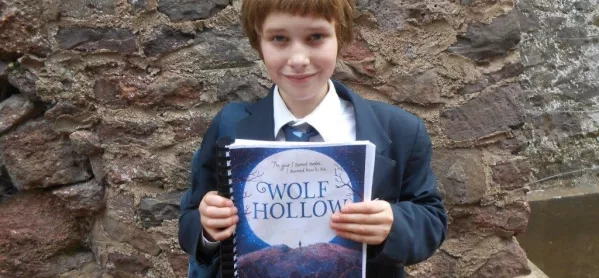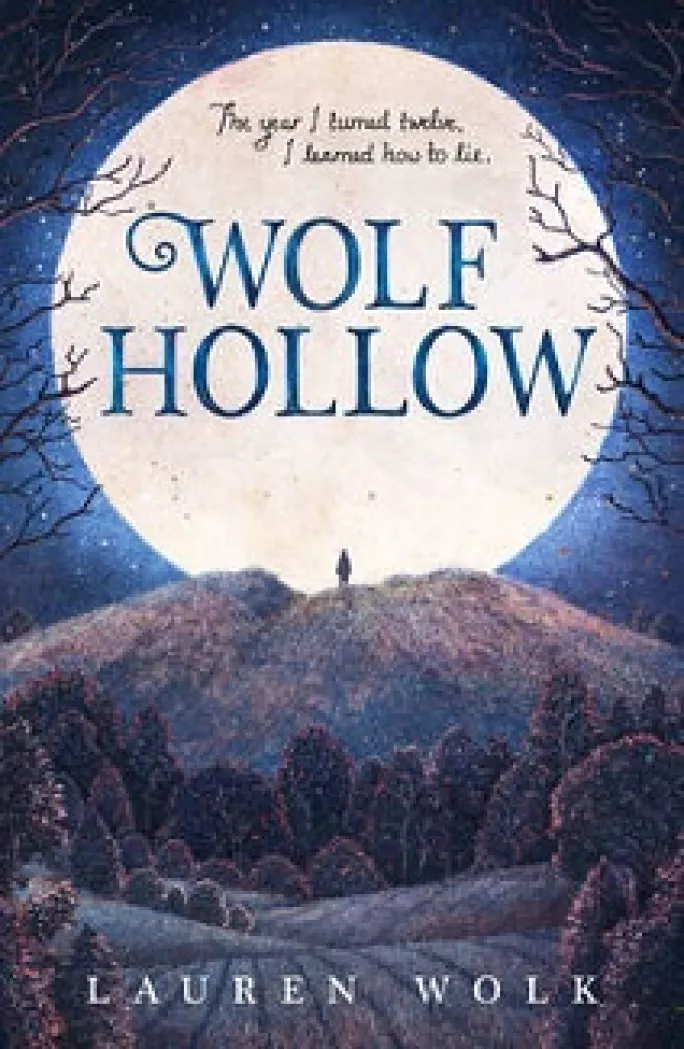- Home
- ‘So derivative that you just want to put it down’: the class book review
‘So derivative that you just want to put it down’: the class book review

Title: Wolf Hollow
Author: Lauren Wolk
Publisher: Corgi Children’s
Pupil reviews
Eleanor, 13: “I felt that the characters did not have enough depth to continue on the journey that they started so well.”
Cosmo, 11: “The plot was mostly predictable, with a few half-baked twists that I saw coming.”
Teacher review
This is a beautiful book, and I loved it. It is a brand new book, and yet it felt familiar, and so my mind curled up with it. Lauren Wolk has the ability to stun with a very simple sentence, and a captivating, lyrical voice that evoked the feeling of being a 12-year-old American girl in 1943. I want to say evoked perfectly, and yet how do I know what 1943 in America felt like? Still, I was convinced that I was there. And this is one of those books that stays and stays with you. I’m still living it now. The tone is in my head. It’s not washed off at all: not a watercolour. An oil painting.
I loved seeing the world through our protagonist Annabelle’s eyes and watching the people who populated her days and framed her life in a cast of utterly convincing, perfectly constructed characters. Wolk writes so beautifully she can be generous with her characters; she can almost waste them. Each one is so perfect, you want more of them, and yet you see them through the limitations of Annabelle’s eyes. It’s very clever.
Betty Glengarry: “the dark-hearted girl who came to our hills and changed everything” is a fantastic character. Her name sounds to Annabelle “like a name from a song,” immediately contrasting the beauty of one character with the incorrigible darkness of the other. Betty lies in wait for Annabelle on the path that leads into Wolf Hollow, “her head down like a dog’s when he’s thinking about whether or not to bite”. She threatens to take a rock to the head of Annabelle’s little brother, James, if she does not give in to her blackmail.
Listen to her: “What kind of a name is Annabelle? You’re the rich girl. It’s a rich girl name…You got a purple window. I never heard of a purple window before, ’cept in a church or a kingdom…Tomorrow you bring me something or I’m going to beat you with this stick.”
And so Annabelle is targeted, she says, simply: “I was afraid in a way I hadn’t known before.”
But see the beauty - Betty is horrible, frightening, awful; we worry deeply for Annabelle; Betty does the worst things one can imagine. And yet we see that, like all the best characters, Betty is vulnerable. She’s jealous of Annabelle, of her family, her perceived wealth, her purple window. And who is Betty? Where has she come from? And has she had much love?
Isn’t it funny how when you encounter a bad character you want them gone, you want them gone, you want them gone. So you almost speed up reading them; and yet, upon reflection, weren’t they the most fascinating character of all? I disliked Betty, I was afraid of her, and yet I worried about her. Now, that takes some writing.

It feels as if Wolk was born to tell this story. The sense of time and place is impeccable: she’s preserved it in much the same way as Little House on the Prairie, or Anne of Green Gables does. It’s like walking into a museum, and then, in the next second, all the items are fresh and purposeful. The ironed gingham dresses are ready for church, the lunch pails are clanking, there’s a mounted telephone, a family photograph “pressed in the family Bible, brown as summer dust”. Inside, the home is “filled with things they’d made. All of it worn to softness”.
And then the gorgeous imagery: the sounds of hammering in the distance, with the upclose scent of kerosene and smoke and meat and big saucepans of soup and, closer still, the fly that had “come to light on the spatter of blood. I watched it drinking”, while a squashed copperhead snake is wearing the imprint of the boot that killed it, and later tomatoes from August and the warm roll with a coin of butter inside. Delicious.
That roll is eaten by a character called Toby who laughs when he eats it: “Just one quick burst.” Afterwards, Annabelle gives Toby Treasure Island to read. How perfect. I wanted to dive into the following hours of Toby’s life that we will never know, and experience him reading that book for the first time.
Toby was my favourite character, the most perfectly realised one of all. Toby is the war hero, the gentle man. It is impossible not to love him: he is an innocent, ruined, like so many of the best characters in American literature, and he stands for all that is beautiful in this world. I’ve always loved this about American literature. I thought of To Kill A Mockingbird, but also I was reminded of Hemingway, Steinbeck and Salinger (and I can give no greater compliment than that).
You know you are absorbed in a book when you speak aloud. Chapter seven made me do this. The simplicity of the language was extraordinary. The first sentence of chapter eight made me say, “Oh no!” Couldn’t help it. The description throughout is beautiful: “Beyond that, she was as pale as February”, and all the figurative language is rooted deeply in the landscape, so the whole book hums.
This would be a wonderful book study for Years 6, 7, 8 or beyond. There is no swearing, and nothing too controversial. I happily recommend it to teachers and school librarians. I hope you love it as much as I did.
Emma Cox is the author of Malkin Moonlight, to be published by Bloomsbury in July 2016. She is head of English at Exeter Cathedral School
If you or your class would like to write a review for TES, please contact Adi Bloom, on adi.bloom@tesglobal.com
Want to keep up with the latest education news and opinion? Follow TES on Twitter and like TES on Facebook
Keep reading for just £1 per month
You've reached your limit of free articles this month. Subscribe for £1 per month for three months and get:
- Unlimited access to all Tes magazine content
- Exclusive subscriber-only stories
- Award-winning email newsletters



